Užventis
Families
The Levin Family – Užventis,
by Vola Levin
Kfar-Saba, Israel
Kfar-Saba, Israel
Leiba Levin
My father, Leiba Levin, was born in 1916 in Užventis, a small village in the Šiauliai district in Lithuania, one of nine children – two sons (Leiba and Shlomo [b. 1935]) and seven daughters (Libe [1907], Hana [1910], Chaya [1911], Feiga [1921], Gita [1922], Beile and Rive) – born to the marriage of Abram (1878) and Sheina (1880) Levin. His elder brother Moishe Levin (1874) with wife Malka and eight children (Ite, Sheine, Cipe Leizer, Mere, Mote Yosef, Leiba and Aharon) were residents of Užventis as well. From my sources, Levin brothers, Abram and Moishe, were at least the fourth generation of Užventis residents; their father Faivush (1849), grandfather Leiba (1826) and grand-grandfather Leizer (end of 18th century) are mentioned as residents of Užventis in JewishGen Archives.
Abram Levin operated a grocery store in partnership with Gershon Kelman, his close neighbor and friend. The families were of average income, not rich, and their main concern was to maintain the family and to learn and live by the bible, according to the Jewish tradition.
Prior to WWII, two daughters were married; Chaya in 1935 (with their neighbor’s son, Meir Kelman) and Hana in 1040, and they lived outside of Užventis, as did my father.
The Nazis occupied Užventis in the first days of the war, in June 1941, and immediately gathered the entire Jewish population in a temporary concentration camp in the village in the basement of the local lord’s estate. A month later, on the 30th of July, all old men and children – about 80 people in total -- were executed by the Lithuanian collaborators and buried in a cave in Želviai forest, about two miles from Užventis. Among the murdered were my grandparents, Abram and Sheine Levin, their youngest son and three daughters, along with my grandfather’s brother Moishe Levin, his wife and all eight of their children. My other two aunts, Feiga and Gita, were sent to Zagariai camp to work and killed there later.
On December 8, 1941, all remaining Jews in Užventis - about 17 in total - were brought to the same place in the Želviai forest, executed and buried in another cave next to the first one.
The only person who escaped from the estate camp was Eliah Cvikas, my father’s good friend prior the war. He was hidden by a local family in a nearby village and survived the war. After the war, he married his rescuers’ daughter and lived the remainder of his life in Užventis. Eliah died in 1980s; his two sons, Leonas and Zame, still live in Užventis with their families.
When the war began, my father somehow succeeded in escaping to Russia, where he was drafted and spent the war in the ranks of the Soviet Army, fighting the Nazis within the 16th Lithuanian Division, which liberated Lithuania and Uzventis in 1944. After the war he was astonished to find that almost all family members had been killed by the Nazis and their local Lithuanian collaborators at the beginning of the war. As a retired soldier, my father applied to the Užventis area authorities and participated in finding the former Nazi collaborators. He died from a stroke in 1957, when I was six.
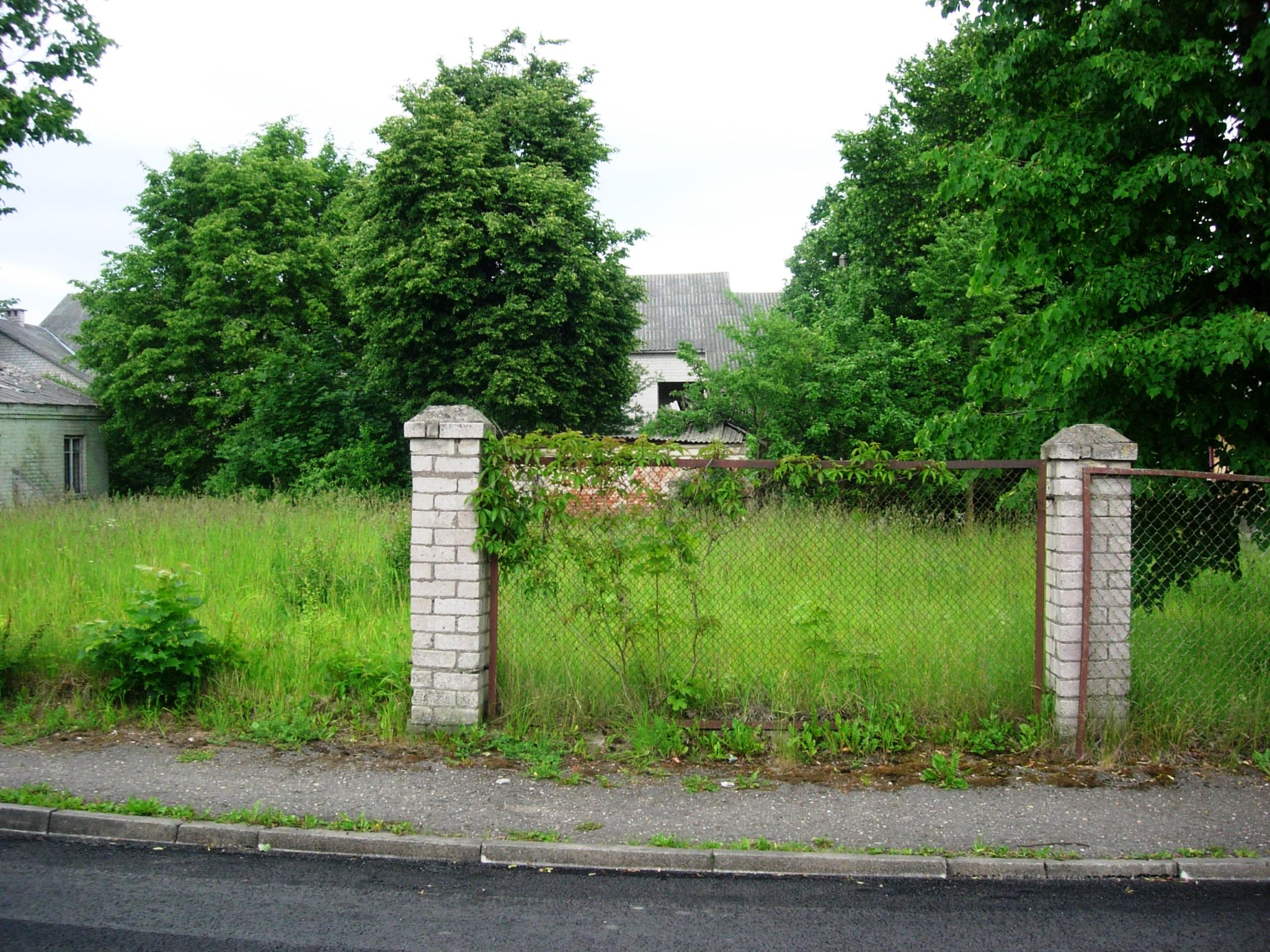
Site of former Moshe Levin
house
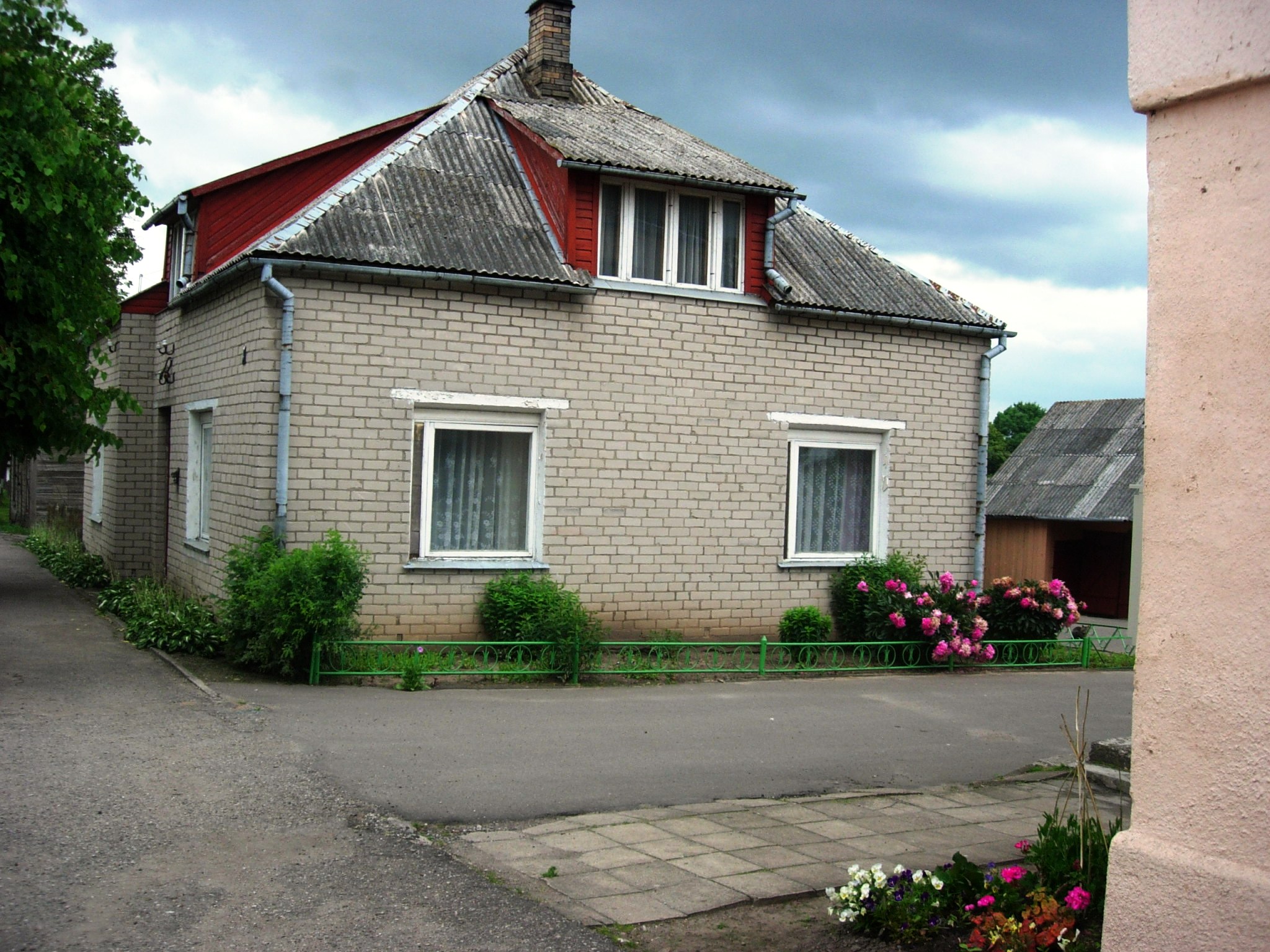
House of Abram Levin
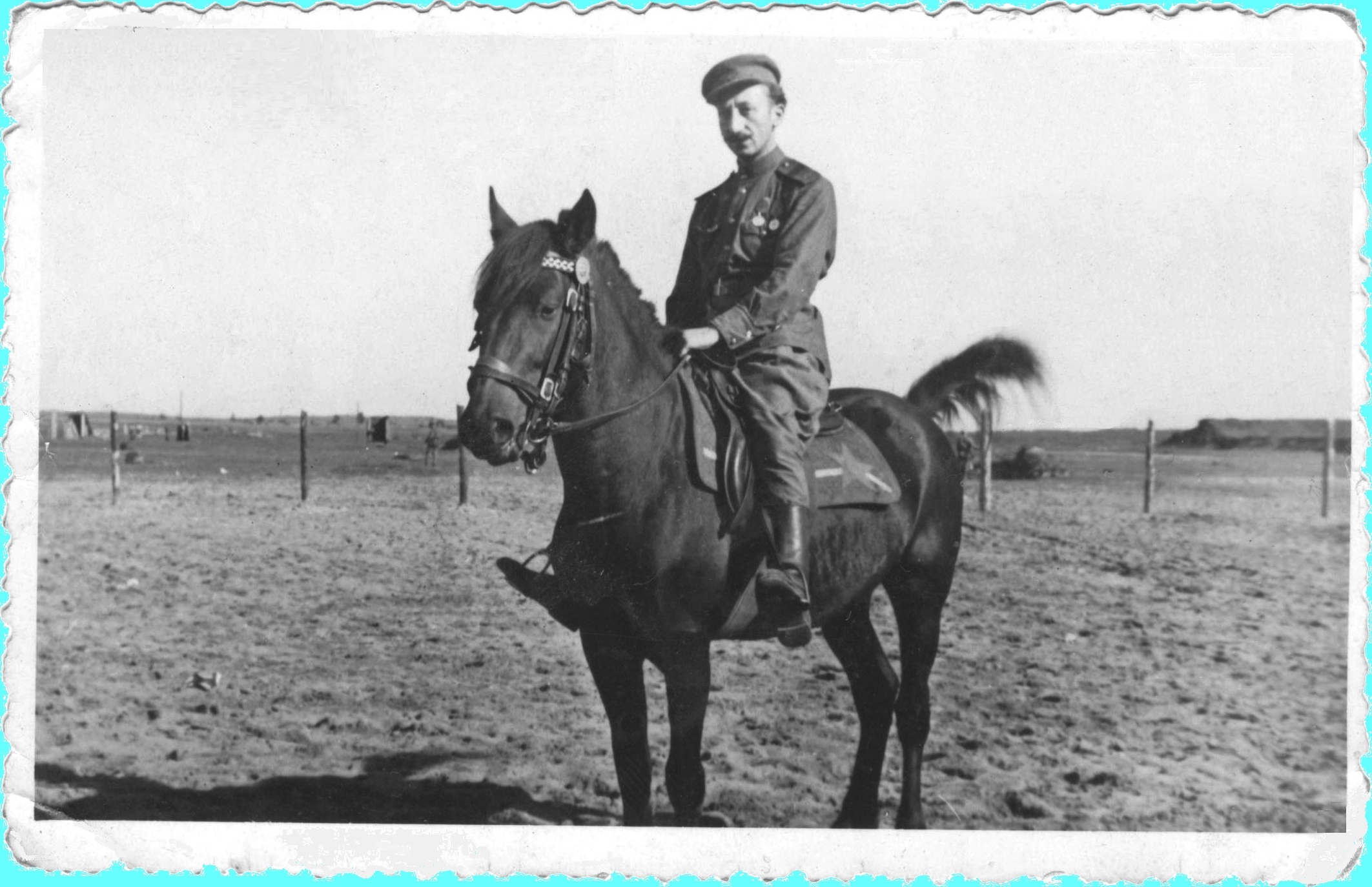
Leiba Levin in World War II
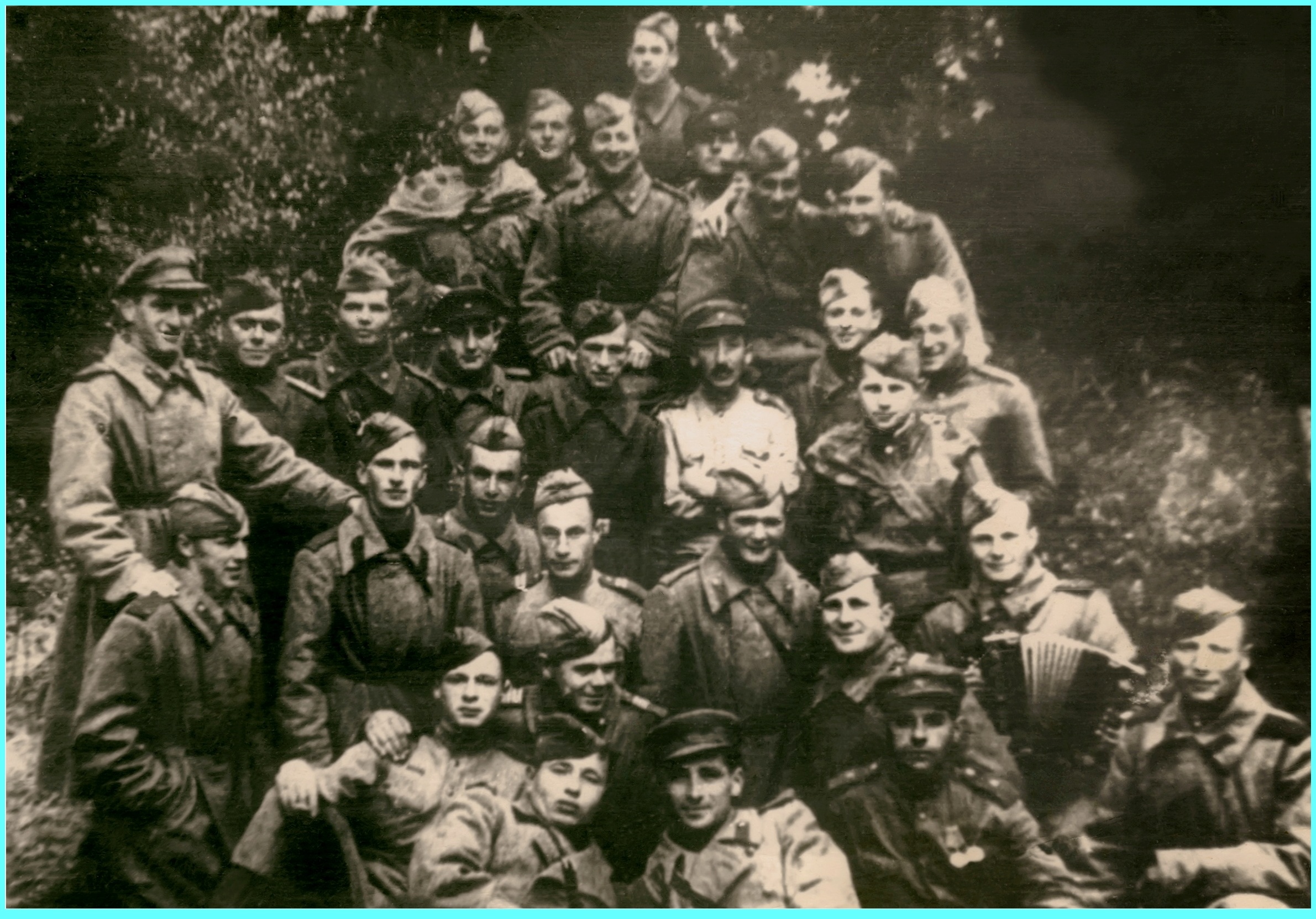
Leiba
Levin (light shirt, center) in World War II
In the 1950s, the local population of Užventis and the surrounding villages began to display an unhealthy interest in the execution site, opening the first cave to look for gold teeth and other valuables. In 1956, my father, together with Eliah Cvikas and other descendants of Užventis Jewish families, moved all the bodies from the first cave to the Jewish cemetery in Vilnius and buried them in a mass grave.
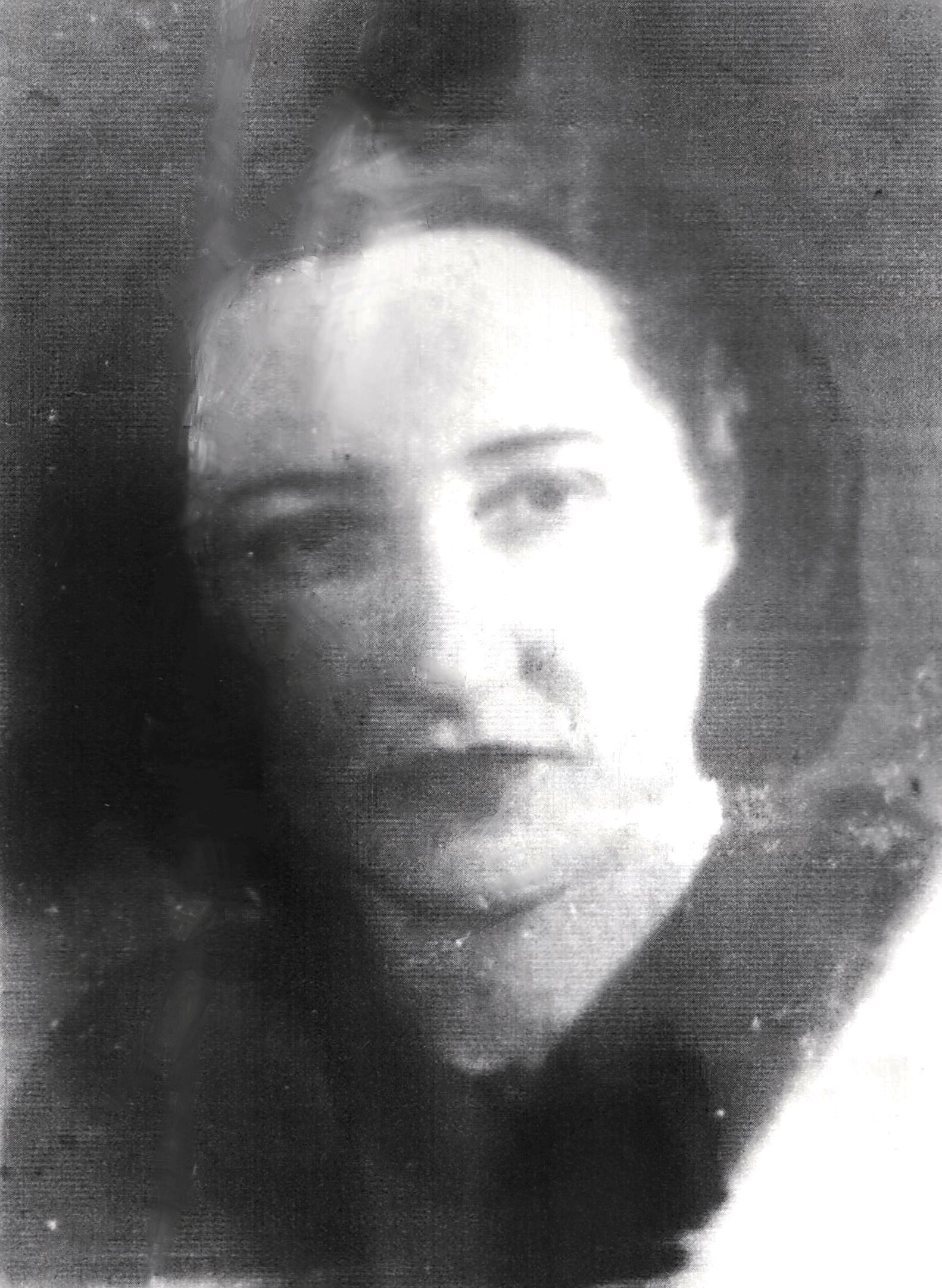
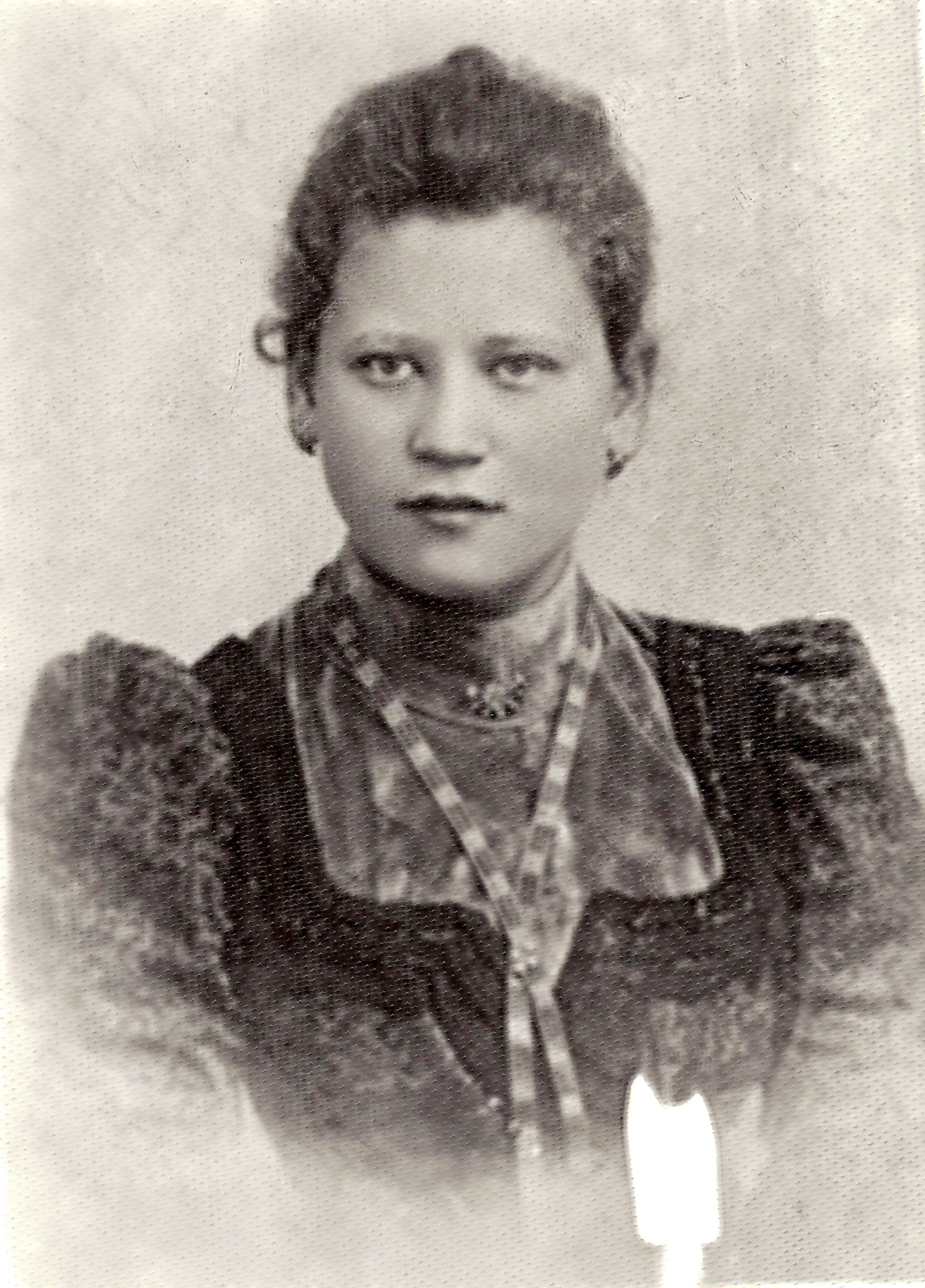
My aunt, Hana, and her husband, Shlomo Gruzd, escaped to Russia as well and settled in the area of the Ural Mountains, where her daughter, my cousin Malka, was born in 1941. Her husband was drafted as well and served in the same Lithuanian division, but was killed during the war. After the war Hana and Malka returned to Vilnius, Lithuania and located my father.
Prior to the war, my other surviving aunt and her husband, Chaya and Meir
Hana Levin Kelman, along with their son, my cousin Benzion (Benny), who was born in Chaya Levin
Užventis, lived for several years in Zarenai village, about 30 km from Užventis.
At the start of the war they tried to escape but were caught by the Nazis. Meir Kelman was executed within several days. Chaya and Benny succeeded to escape and, until the end of the war in 1944, were hidden by several local families, most of the time by some village priest. When the Red Army got to Lithuania, my father located them and asked them to go to Užventis. He later took them to Vilnius.
So, after the war, all three families of the only survivors from Levin family were reunited living for many years in one flat, where, in 1950, I was born.
Levin family descendants at the Abram Levin
house
Back to Families list
Back to Užventis Home Page
© 2013 R. Barry Spinak
Created: Nov
2013 Updated: Nov. 2016
Get
involved!
This page is hosted at no cost to the public by JewishGen, Inc., a non-profit corporation.
If you feel there is a benefit to you in accessing this site, please consider participating through
Jewish-Gen-erosity.
This page is hosted at no cost to the public by JewishGen, Inc., a non-profit corporation.
If you feel there is a benefit to you in accessing this site, please consider participating through
Jewish-Gen-erosity.
